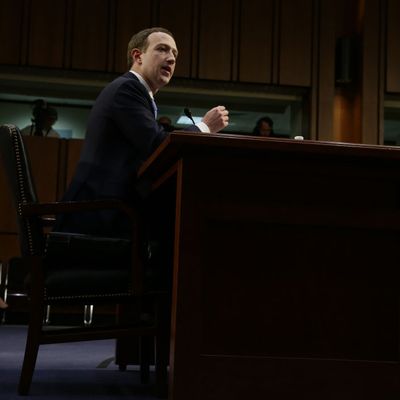
After Facebook admitted in late 2017 that it allowed individuals and organizations based in Russia and other countries to buy political ads meant to sway voters during the 2016 presidential campaign, it’s been clear that it would finally need to abide by the Federal Election Commission’s political-advertising disclosure rules. It announced plans to do so in March, and today it rolled out that program in earnest. Every political ad placed on Facebook or Instagram will have a “Paid for” link attached to it, allowing viewers to see just who is paying. Any individual advertisement aimed at U.S. political campaigns will also need to verify their identity and location as well.
More interesting for researchers and the curious, Facebook also set up a page that allows anyone to search through every political ad placed on Facebook and Instagram. Some fun search terms so far include “MAGA,” “MS-13,” and “end of the world.” While right now it serves mainly as a curiosity, it’ll be much more useful once the 2018 midterms begin in earnest.
Still, you can only search for ad campaigns that began on or after May 7, 2018, which does mean that much of what happened during the 2016 campaign will remain mostly opaque to outside observers. One issue: For an ad to have the disclosure statement attached to it, the advertiser has to declare that an advertisement is political.
With millions of ads flowing through Facebook’s largely automated ad-buying program, it’s easy to see how someone acting in bad faith could manipulate the system. Facebook has an option for users to “report” ads they believe to be political to Facebook moderators, and you can already find several ads in Facebook’s database that appear to have been taken down for not disclosing who paid for them.
Facebook aggressively pursued political-advertising dollars for years, but waited until now to attach the disclaimers that the Federal Election Commission requires on any public communication from a political campaign. In 2011, Facebook actively sought and gained an exemption from FEC regulation, saying its ads had a hard character limit, making disclosure difficult. As recently as last November, Facebook was still pushing back against the FEC about attaching disclosures on “issue ads” that advocate for a position not attached to a particular candidate or campaign. (It relented in April and agreed to attach disclosures to issue ads as well.)
Facebook began to take major action on disclosure around political advertising after sustained media and political outrage, which culminated with Mark Zuckerberg testifying in front of Congress. Nothing like two days in a booster seat under the bright lights to make a company change course, we suppose.





























